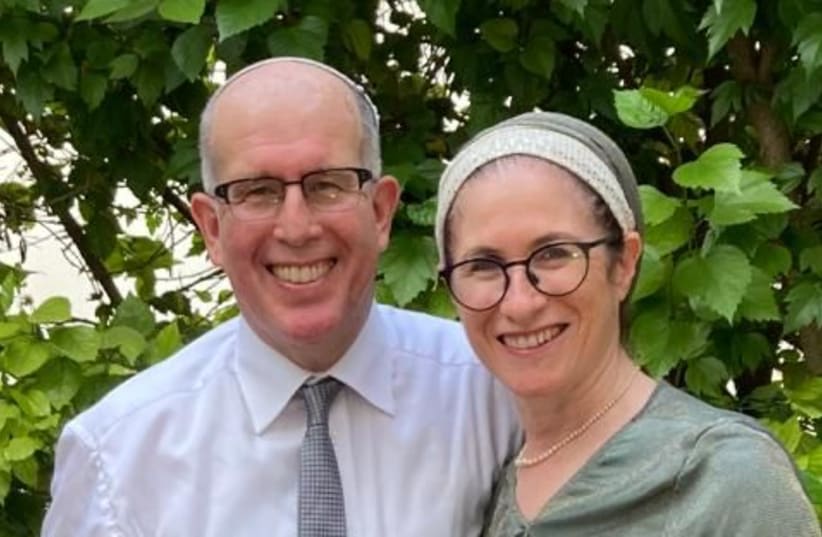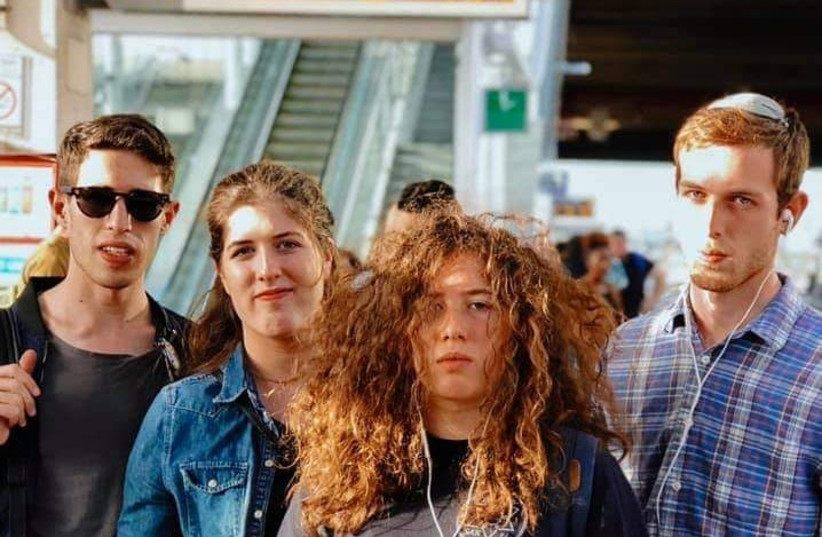‘I didn’t think there was much hope for South Africa,” says Morris Kaplan, explaining why he left his birthplace.
Kaplan grew up in Kimberley, South Africa, in a traditional Jewish family, attended an English-style boarding school, then moved to Cape Town to study accounting and gain work experience. When he heard that Australia was recruiting accountants, he perked up his ears. At age 26 the time seemed ripe for such a move. Moreover, working for an international company meant that he could easily transfer to its Sydney office.
In Sydney, Kaplan continued his hobby of playing soccer. He was happy when a soccer pal invited him to join his Rosh Hashanah family dinner. After he met with this congenial group, the grandfather looked him over and announced, “Someone here must know a nice Jewish girl for you!” The hostess’s sister promptly suggested her girlfriend Ilana, who played basketball and was very athletic. “After all, he plays soccer,” she said, “so they’re bound to click” – in retrospect a prophetic statement as Morris and Ilana married in November 1989.
Ilana’s mother and maternal grandparents were Polish Jews who had moved to France. After surviving the Holocaust with false identities in rural France, they emigrated to Australia after the war. Her grandfather was spurred into this decision by a blatantly antisemitic slur from a Frenchman – “deciding then and there to get as far away as possible from Europe.”
Her father’s family was less fortunate as they were captured by the Nazis in Paris in 1941 and murdered in Auschwitz. Their three children survived a fraught childhood with the help of Chabad Lubavitch. Ilana’s 15-year-old aunt smuggled nine children, including her two brothers, across the border. After successfully reaching Switzerland, her orphaned dad and his brother were sponsored by the community in Sydney, Australia, where they found new homes.
A first-generation Australian, Ilana attended a Jewish day school. She first came to Israel at age 17 on a 10-week program and subsequently spent five months on veteran Kibbutz Mizra in the Jezreel Valley in 1985. At NSW University she majored in psychology and German, and was then employed in various corporate roles.
As young parents, the Kaplans became more religious and were soon actively involved in the Jewish community. Once Morris learned to capitalize on his ability to ad-lib, word got around, and he enjoyed volunteering as a stand-up comedian at private and communal events. He became a Zionist later than his wife as he had never visited Israel. Actually, he was in his 40s when he finally attended a nephew’s bar mitzvah in 2006 on their first family trip to Israel.
Life subtly changed for the Kaplans about nine years ago when their younger son moved to Israel to study in yeshiva and stayed on. “He was in yeshiva until last year, completed army service and a university degree, and now works in venture capital,” Ilana explains. Then their 24-year-old daughter “graduated high school, came on a gap year in seminary and never went back to Australia. She is currently studying business at IDC.” Though their older son stayed in Sydney, their youngest child, a daughter, also opted for a gap year in seminary.
Soon after, the Kaplans started downsizing and sold their house with an eventual move in mind. “At that stage we never imagined that we would be making aliyah within the year,” Ilana comments. However, their plans to buy a smaller home in Sydney never transpired.
Fortuitously, she received a serious job offer in Jerusalem two months before their aliyah. On his part, Morris realized that he could work remotely outside Australia servicing clients, doing evaluations and resolving tax issues. Explaining their motivation, he says, “We wanted to live in a Jewish country. Israel has so much more depth – it’s a meaningful life. A spark lit inside me when we first came in 2006 and then went back and forth a lot.” Ilana counters, “Of course we wanted to be near our children, but principally we felt that for religious reasons Israel is where we should be.”
“Our youngest made aliyah with us in 2019 after a brief return to Sydney and is now serving in the IDF, where she received an exemplary soldier award after basic training,” Ilana says. After initially working in logistics, she switched to the search and rescue brigade and enjoys the challenge.
Morris needed to adjust to their new life, cope with conversational Hebrew and get used to the mentality. “Israelis are tough to deal with, I find. Australia was an easy place where I could do anything, and we had control of our environment. I had heaps of contacts, for example.”
On the plus side, he learns Talmud every day with an American rabbi from Ma’aleh Adumim and enthuses, “I really love learning and can advance here.” He has a very hectic schedule work-wise, dealing with different time zones in Australia, Israel and the US. “I cannot complain about boredom at all,” he confesses wryly.
Ilana has a steady part-time position as Australian Development Coordinator at Boys Town Jerusalem – a job that “very unexpectedly fell out of the sky and landed on my head!” She also volunteers for Telfed, welcoming new olim [immigrants]. Though their jobs require them to travel to Australia, that has largely been impossible.
The Kaplans consider themselves lucky to have found new and old friends in Jerusalem. Besides that, Ilana remarks, “Life is exciting. It is still surreal having the Kotel so close. I pinch myself most days that this is real and I actually live here in our homeland.
“As a daughter of Holocaust survivors, I always think of my grandparents who didn’t survive, and how much it must mean to them that their descendants are living in the only place on earth that we can call home.”

